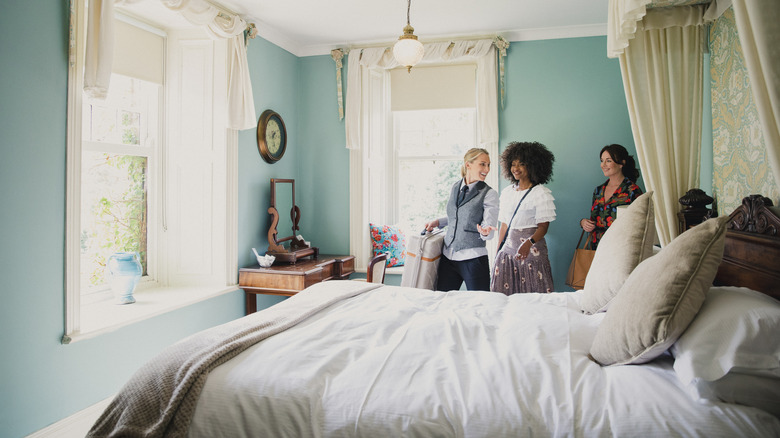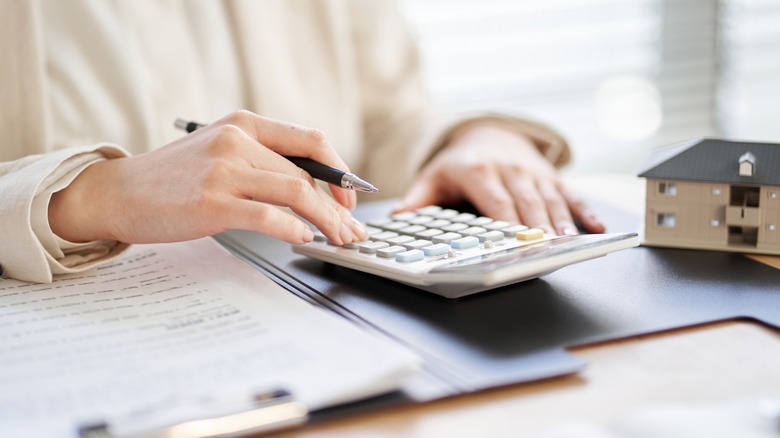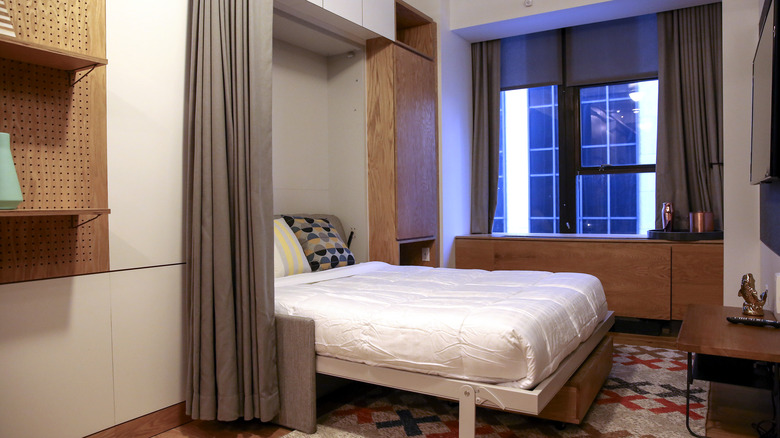Why HGTV's Mika Kleinschmidt Thinks Having A Guest Room In Your Home Is Overrated
When buying a home, one of the biggest considerations is the number of bedrooms. Typically, the more people living in the home, the more bedrooms you'll want to have. But for a standard family of four, a home with three or four bedrooms will often suffice. Having five or six bedrooms can be a challenge for resale as that often veers into the luxury territory and extra square footage that attracts a different kind of buyer.
Of course, every bedroom isn't always used as nightly sleep quarters. For some homeowners, an extra bedroom can serve as an office, hobby space, or guest room. But Mika Kleinschmidt, co-host of HGTV's "100 Day Dream Home," doesn't see a guest room as the best utilization of space. "A lot of times, people will have what they call a guest room," Mika Kleinschmidt told Realtor.com. "But you're paying for every square foot in the house, and the guest room might get used maybe four or five days out of the year." Kleinschmidt makes a point that allowing that square footage to sit unused for most of the year is an injustice to the homeowners. "The prices of new construction have gotten higher. You really have to make sure that you are getting usable space in your house and not spending money on a room that you're not going to use."
The cost of unused space
The cost of new construction has increased over the years. From 2018 to 2021, the cost to build a single-family home increased by 42%, and it's no secret that home prices are some of the highest they've been, per the National Association of Realtors. With this put into perspective, it doesn't make sense to have usable square footage sitting unused for the majority of the year. However, that doesn't mean you have to do away with extra bedrooms completely.
Unless you regularly entertain guests who stay the night or have out-of-town family, a dedicated guest room may actually be a waste of space. Mika Kleinschmidt suggests doubling up on spaces to get the most out of your square footage. "So, I think it's better to make flex spaces that can double up as your guest room, and then maybe when you're not using it as a guest room, it can convert into a home office," she explained to Realtor.com Having a flex space provides you with some versatility and also allows you to get the most out of the room even when you don't have overnight or long-term guests.
Creating flexible guest space
When you don't have guests staying with you, having an office or hobby room is one of the best ways to utilize the space. But pulling off this flexible, double-duty room requires homeowners to get creative with the design. The biggest question is what to do with the bed. If no one is sleeping in it nightly, you don't want a large bed taking up the bulk of the room's square footage. The solution is a bed that can transform into something else, such as a day bed, a Murphy bed, or one that converts into a sofa. With this piece of double-duty furniture, you'll have a bed for guests to sleep in during their stay, but also be able to have seating or hide it away when you need an office.
Other furniture in the room can also play double duty to serve as both a guest room and office space. Consider cabinets or drawers that can serve as storage as well as a nightstand. However, you'll also want dedicated office storage to keep everything out of the way when someone is spending the night. If the room is big enough, it may also be worth it to create specific zones that are separate from the rest of the space so items like a desk or a work table don't get in the way.



